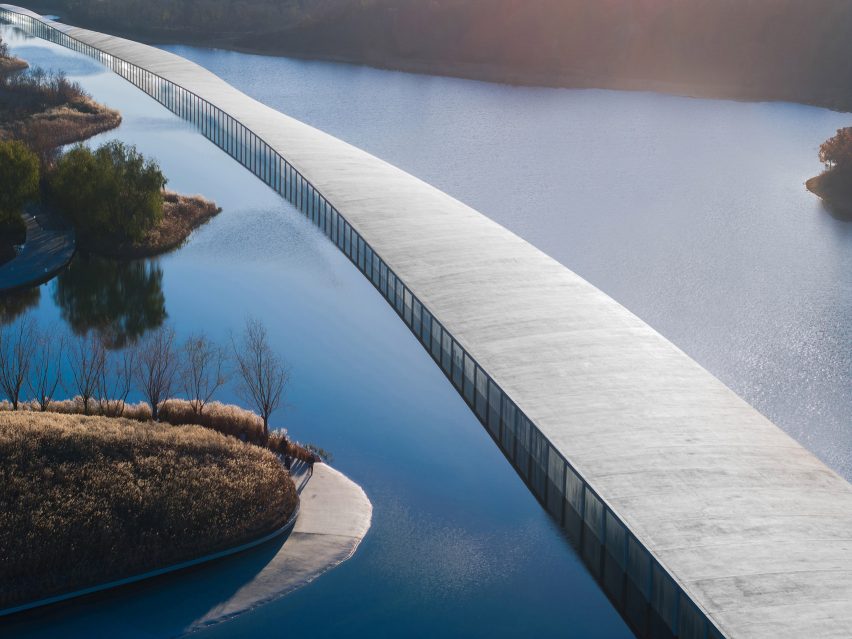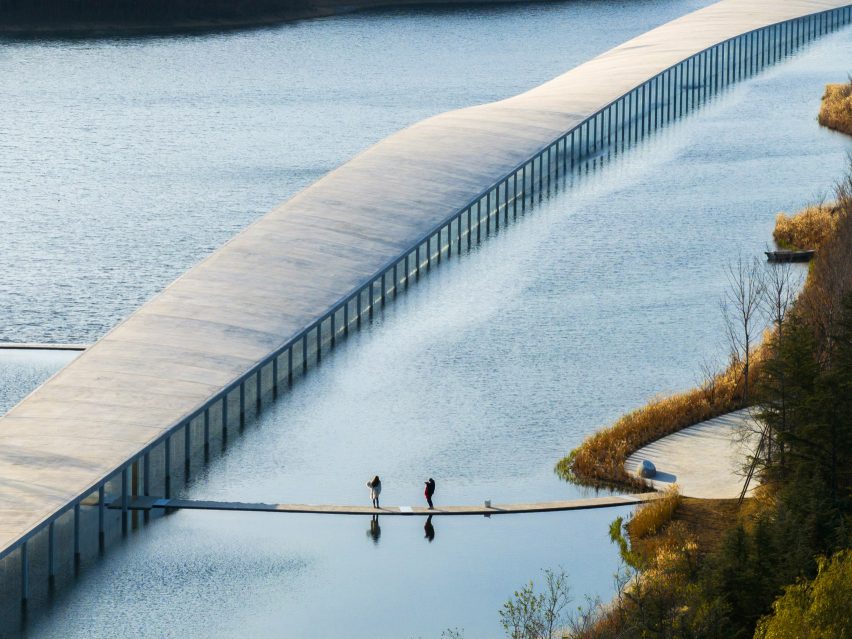Christina Yao, Ishigami reveals one-kilometre-long museum emerging from Chinese lake, De Zeen, 1 February 2024
Japanese architect Junya Ishigami has unveiled the one-kilometre-long Zaishui Art Museum on a lake in China, which features openings that let water flow over the museum floor.

Located on an artificial lake at the entrance of a new development zone in Rizhao in China’s Shandong Province, the 20,000-square-metre linear museum extends from one side of the lake to the other, almost covering the entire diameter of the lake.
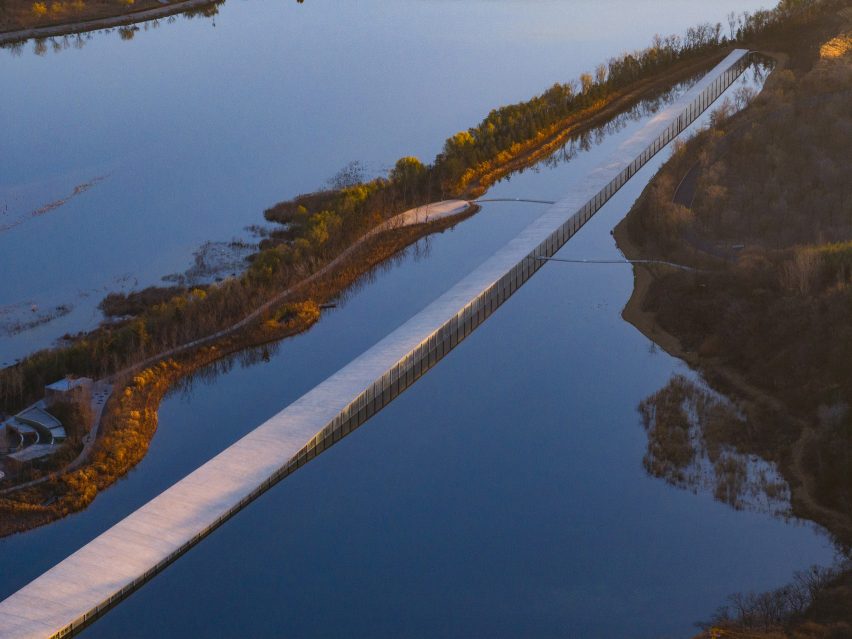
Ishigami wanted the Zaishui Art Museum to feel like it is emerging from under the lake. Parallel columns rise from the bottom of the lake to support a thin concrete roof with a subtly undulating shape.
“Columns repeated at regular intervals define the new surface of the water, while the water’s edge created by that surface defines the new ground,” explained Ishigami. “A new exterior is born, in the structure’s interior.”
Glass panelling was inserted between the columns to give visitors views of the lake, with Ishigami intentionally leaving gaps where the building’s floor meets the surface of the lake.
This allows water to flow into the building, submerging parts of the floor. In winter, whilst the water surface will freeze, the water underneath remains liquid and will continue to flow into the interior.
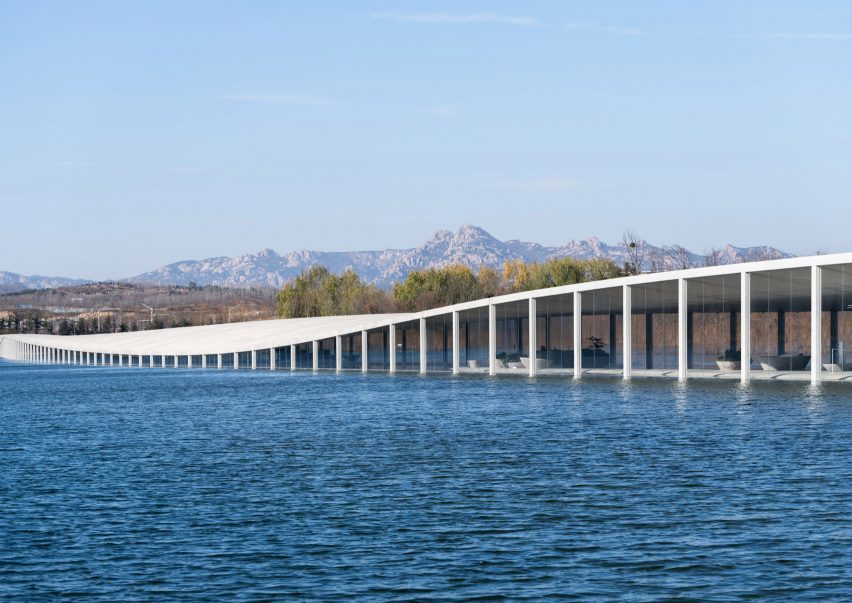
“In this new natural environment created inside a piece of architecture, one senses a landscape in which the scene inside segues into that outside,” said Ishigami.
The Zaishui Art Museum’s undulating concrete roof hangs low in places to imitate the outline of the mountain range behind. In parts of the museum building, the roof opens up to the sky to introduce the surrounding nature into the building.
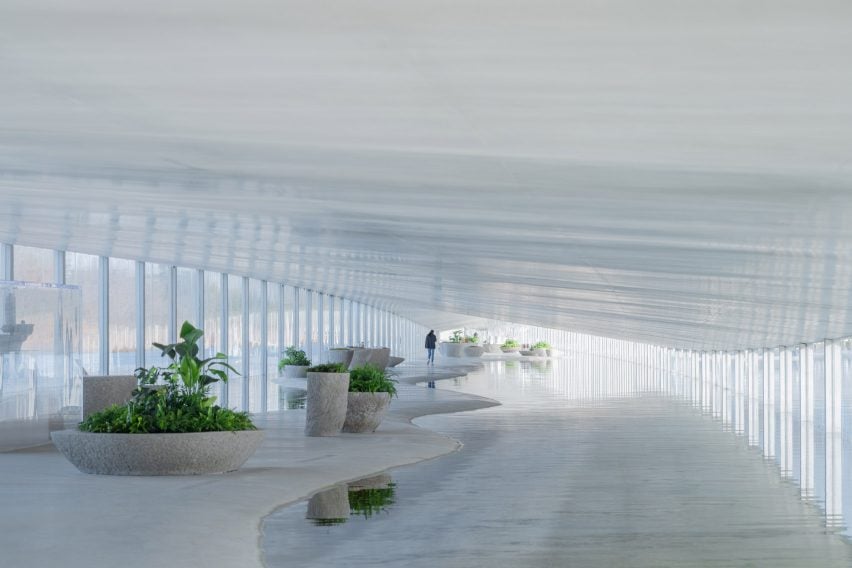
According to Ishigami, the aim of the project was to address how Chinese architecture is generally “closed off” from the environment.
“From the tiniest abode to the most monumental edifice, everything feels in some way defensive. There’s an air of resignation, of a forced severing from the environment, a compulsion to close off,” he said.
Instead, Ishigami believes the key is to view architecture as a “gentle giant” of the environment and search for a new relationship between the natural and the manmade.
“One discovers a natural environment inside the building, and through its characteristics – as a new outside that has sprung up within the building – forges an amiable connection with the surrounding nature,” he said.
Across from the museum, Ishigami designed a visitor centre concealed under an expansive grass-covered roof.
Like the Zaishui Art Museum, the visitor centre features a glass facade supported by columns, and has a wide opening on the side facing the museum.
Two walking paths on either side of the museum’s one-kilometre-long body connect it to the shore, where visitors can wander off to experience the nature around it.
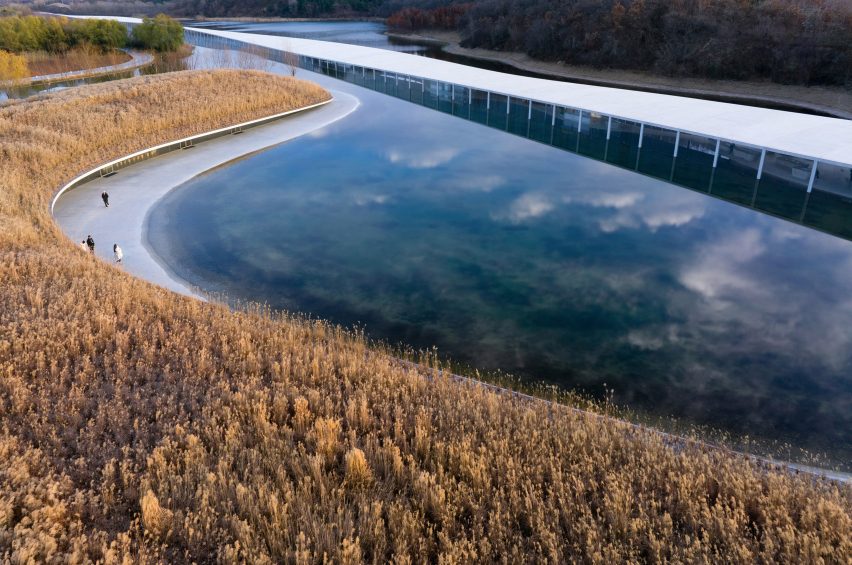
A chocolate-themed art exhibition is currently on display at the museum. According to the studio, the building can be adapted to accommodate various types of exhibitions, as well as retail concepts, in the future.
Ishigami founded his eponymous studio Junya Ishigami + Associates in 2006 after four years working at the Pritzker Architecture Prize-winning studio SANAA.
His other recent projects include a mud-covered Japanese house and restaurant below ground and a covered plaza with a sloping floor at a Japanese university.
The photography is by Arch-exist.
Project credits:
Design leads: Junya Ishigami, Zenan Li
Design team: Zhirui Lin, Sellua Di Ceglie, Rui Xu, Tong Zhang, Cing Lu, Yuxuan Zhou, Zhixuan Wei, Yunyi Zhang, Hanyang Zhou, Qinxuan Li, Jason Tan, Anping Song, Yichen Ji
Structure: XinY structural consultants, Xin Yuan
MEP: Environment-friendly solution to Building services Engineering, Xueqin Yin
Lighting adviser: Environment-friendly solution to Building services Engineering, Xueqin Yin
Stone material factory: Sichuan Yutong Stone Co., Ltd
Construction (Reinforced concrete part): Beijing Yihuida Architectural Concrete Engineering Co.,Ltd
See also: junya ishigami interview on his zaishui art museum stretching endlessly over a chinese lake

